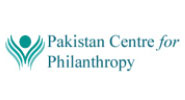Published in The Guardian
By Madiha Qureshi
After Peshawar, Pakistan must not turn a blind eye to the connection between its ghost schools and the growth of radicalism in its most neglected regions.
Eight years ago, I briefly held what was perhaps the best job in Pakistan. I was the documenter of good news.
You see, good news has become bit of a rarity in Pakistan. After being ravaged by a violent surge in militancy, widespread violations of women and minority rights, and paralysing political impasse, in December Pakistanis faced what was probably the hardest-hitting tragedy yet: 132 families in Peshawar buried their children following the attack on a military-run school. It was a heartbreaking epilogue to 2014 for Pakistani children, who have seen about 1,000 schools closed by the Taliban in recent years.
In 2006, I began working for a young nonprofit that built schools for Pakistan’s most impoverished communities, many of which had never even seen a government-run “ghost” school before. Part of my job was to write down the stories of the children in these schools for use in our fundraising campaigns.
I heard parents’ stories, too. The mothers, who were mostly illiterate, captivated me with their faith in education as the only thing that would save their children from repeating the cycle of poverty. The kids were often enrolled into school after having already spent years on the neighbourhood streets, or worked long hours at odd jobs to support their families.
And yet, each one of them retained a positivity about the future that was almost inexplicable to me. Perhaps it was due to the dogged teachers who juggled multiple roles of mentor, family counselor, even nurse in the case of children in one Karachi community who came to school each morning with battered fingers after spending their nights cleaning shrimp for a seafood company.
But of all the stories that I heard that year, it is one from a school in Daharki that haunts me today after one of the worst years ever for Pakistan’s minorities comes to an end.
The city had a sizeable Hindu minority living in relative isolation from the majority Muslims. The principal told me that when the school first opened, the children would refuse to drink water in the same cups as the Hindu children. They said they had been instructed by their parents to do so. The principal tackled this the only way she knew how: her staff made sure there were no separate cups for anyone. They then calmly explained to the children why such discrimination was wrong and soon their students shed values borne out of long-held ignorance and began mingling with the Hindu children.
This is just one tiny example of the enormous impact of a good education and educator. Apart from cleansing minds of hatred and bigotry, education can also trigger ambition that is often the first thing to dissolve in the cycle of poverty. I am reminded of the children of the Karachi slum Machar Colony, whose only other option, if not school, was to be recruited by criminal gangs or an extremist sectarian organisation with deep roots in the community. But, openly shunning those options, there was the 10-year-old epileptic boy who would walk several miles in the scorching summer heat to his school and wanted to be a scientist, the school maid’s son teaching his illiterate mother how to read, and the thousands of young girls planning to become the first women in their families to ever graduate school.
Of course, even back then, Pakistan was on a path to pervasive radicalisation. The attack in Peshawar is yet another nail in Pakistan’s coffin, cynical residents and pundits alike will tell you today. But people who work with its children every day and see them grasp the potential they were born with – are seeing things differently even today.
The Peshawar attack reflects a ubiquitous problem of extremism finding easy victims among a growing population of disenfranchised youth failed by a grossly underfunded and mismanaged education system. It is also disingenuous to separate Pakistan’s education problem from the unbridled growth of radicalism in its most neglected regions.
In the wake of the Peshawar attack, a web movement to build 141 new schools across Pakistan – one in the memory of each victim – went viral. The Citizens Foundation (TCF), my former employer in Karachi, has committed to build all the schools. It needs to raise $21m (£14m) to build the schools.
The response to this movement – led by civil society and independent of the Pakistani government – has been palpable. It received individual commitments to build four of the schools in just the first three days, and at least 16,000 people around the world have pledged their support. TCF believes it can reach the target in three years, which is likely given its record of building 70 to a 100 schools a year. The first school will open its doors in 2015.
This is just one initiative, but perhaps the best tribute possible to the students and teachers who were giving and receiving the one thing that directly undercuts the criminal ignorance that took their lives. Pakistan can beat extremism but it cannot do it without reforming its broken education system; breathing life in each one of its ghost schools; rewriting the national curriculum to reflect progressive and tolerant values; and putting every single child into school.
Nelson Mandela told us, “It always seems impossible until it’s done.” It won’t be the first time.
Madiha Qureshi is a development communications professional. She formerly worked with the Citizens Foundation in Karachi
Read more: www.theguardian.com/global-development-professionals-network/2015/jan/08/education-in-pakistan-building-more-schools-to-combat-extremism







